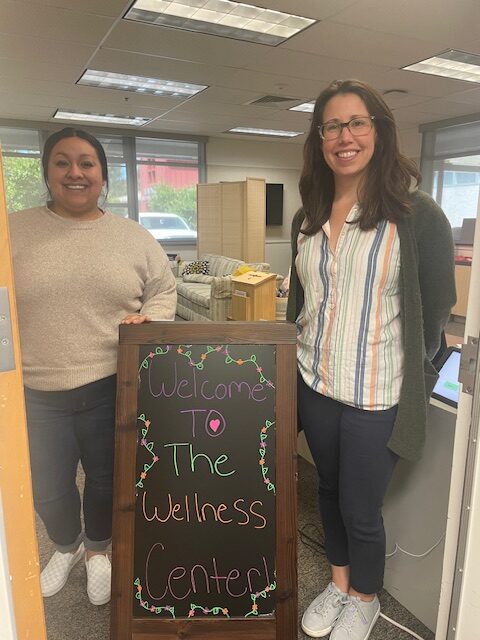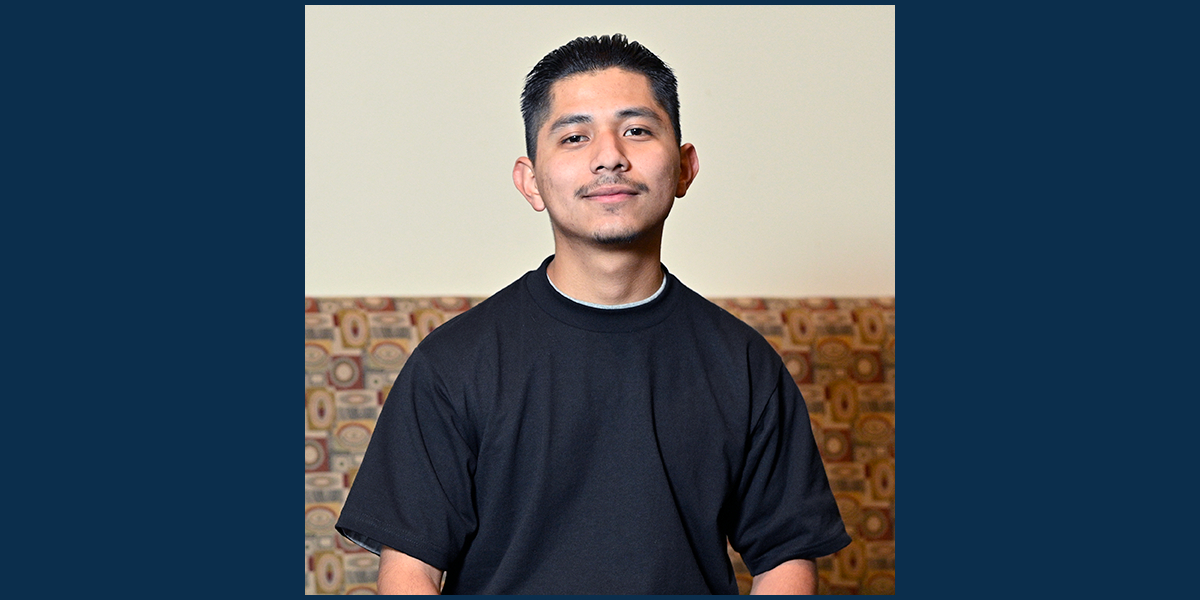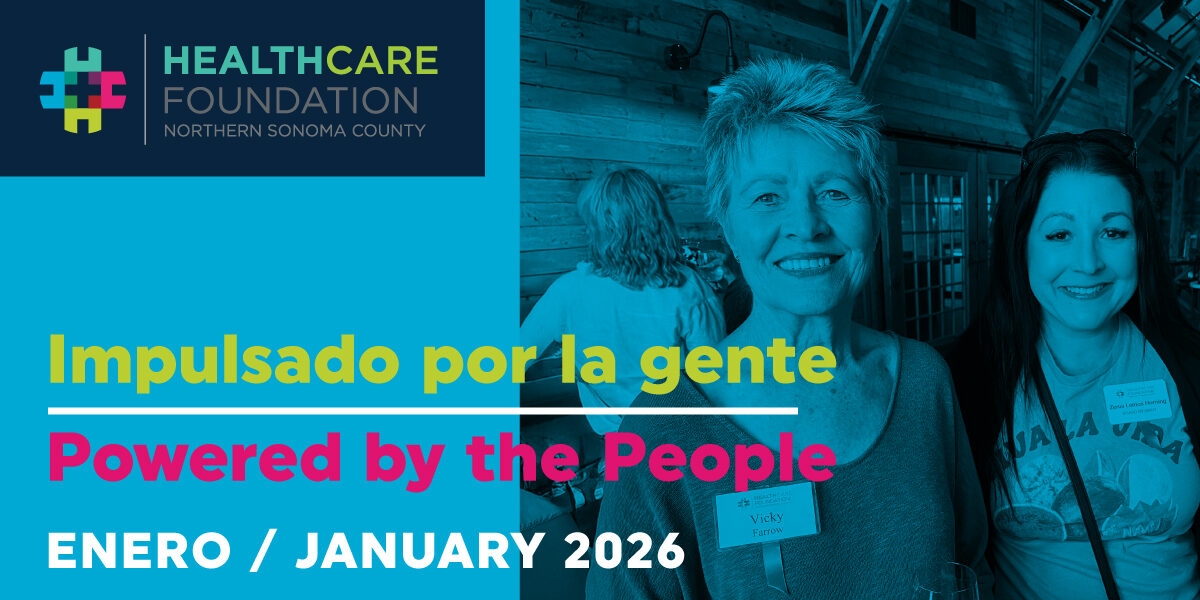

Community Partner Spotlight: A conversation with Zenia Lemos Horning
4 min read. Zenia Lemos Horning, lead psychologist at Healdsburg Unified School District, fills us in on the mental health challenges facing our local youth.
Zenia Lemos Horning is lead psychologist and program specialist at Healdsburg Unified School District (HUSD) and a practicing bilingual and bicultural educational psychologist. In 2023, she wrote an article in the Healdsburg Tribune for Mental Health Awareness Month on the country’s “epidemic rates of child and adolescent mental health disorders,” and what HUSD was doing to address it.
The article caught the attention of Healthcare Foundation Board member Kathi Safford, who reached out to see if Zenia might be willing to partner with the Healthcare Foundation as it continues to refine and grow its knowledge and interventions in the area of mental health services, especially with respect to bilingual and bicultural access.
Since then, Zenia has served on the Healthcare Foundation’s Program Committee, which reviews funding requests and offers recommendations to the Board of Directors on where limited funds might be directed to do the most good. On the occasion of this year’s Mental Health Awareness Month, we spoke with Zenia about her work, and specifically the way the school district and nonprofits partner to support the mental health of youth and families in our region.
How long have you been with the Healdsburg Unified School District?
I’ve been a school psychologist for 24 years, but in Healdsburg it will be 10 years this July.
Are you from the area originally?
I’m originally from Sonoma County. I left to go to college at UC Berkeley and grad school at the University of Washington, in Seattle. After that I moved to Southern California, followed by the East Bay. Then I met my husband and moved back to Sonoma County.
Can you describe what you do at HUSD?
I primarily work at the junior high and high school, but I consult with the other psychologists for Pre-K and up and help organize mental health services across the district. I am also a diplomate in school neuropsychology, which means that with more complex cases I can do a neuropsychology assessment and get more information on how best to support a child. Additionally, I have a private practice as a licensed educational psychologist.
“Together we’re doing a really good job of getting the kids the mental health services they need. Strengthening the community partnerships has been key.”
Zenia Lemos Horning, Healdsburg Unified School District
You wrote in your article last year for the Healdsburg Tribune that mental health conditions in the schools had already been on the rise before Covid but that afterward they went even higher. Is this still the case today?
Absolutely. The levels of anxiety and depression are huge. We’re also addressing an increase in difficulty with aspects of executive functioning, which got lost during the pandemic because kids weren’t learning how to be students during that time—how to sit in a classroom, how to stay organized, and how to focus for at least an hour. So we’re re-teaching all of those skills.
How are mental health supportive services integrated at HUSD?
It’s a robust and evolving system. First of all we have our own staff of school-based mental health providers, including counselors, psychologists, therapists [MFTs] and social workers [LCSWs].
We also have mental health interns [third-year graduate student trainees] working at sites in our district. Next year, we will have several interns staffing a new Wellness Center we’re opening at Healdsburg High School. We also partner with the Sonoma County Office of Education to provide supervisors for the interns. They’re on-site at some of our schools, including next year in the Wellness Center. We’re going to have interns at all of our sites next year, including the elementary and secondary schools.
Additionally, we have partnerships with several nonprofits, including SOS and Side By Side, and also with Siyan which is based in Santa Rosa. Sometimes they are able to come on site to provide services, and sometimes parents take their child to the agency’s office. We’re also going to be collaborating more with Humanidad, who will soon have office space at Corazón in Healdsburg. For now, we’re sending referrals to Humanidad’s Cloverdale and Santa Rosa offices.
How is the work divided up between the school’s services and that provided by nonprofits like Humanidad?

It depends on the agency. For example, SOS is only at our secondary site, and their services are primarily for students who are part of the diversion program through Healdsburg Police Department. So it’s a short-term specific number of sessions that they’ll provide. Side By Side is more long-term, but they are only able to serve families with Medi-Cal. So there are limitations. The only agency that doesn’t require anything and is a hundred percent free is Humanidad. Siyan has a sliding scale, and they will provide free counseling if there is no other payment option for a family because they are grant-funded and have the money for that.
At each of our sites, every week or every other, the team of administrators, school psychologists, school counselors, and HUSD mental health providers all get together to triage the cases we have, figuring out how we can best support the student, whether by providing the services ourselves or through referral to one of these agencies. From what I’m hearing from parents, the more grassroots agencies are better at providing them the services their children need, including the frequency of appointments they need.
Together we’re doing a really good job of getting the kids the mental health services they need. Strengthening the community partnerships has been key. I think it’s going to expand even more with the Wellness Center opening up and also having Humanidad able to provide services at Corazón. That’s another layer of support that we’ll have locally for our families.
It sounds like this cooperative model you describe between the schools and nonprofits is about increasing access while better tailoring services to the specific needs of students.
That’s right. We had this kind of cooperation before the pandemic but not to such a robust level. We learned a lot through the pandemic, in the course of having to reach out to people and collaborate more with outside providers in order to fulfill our mission and get the services to our students. The approach has evolved to meet changing circumstances and a growing need.
Beyond the uptick in anxiety and depression, are there other trends you’re seeing that we should be paying attention to?
Certainly one is substance use at the secondary school level. I would also say social media obsession, the addiction to the phone. It’s not unique to us here, it’s national and probably in other countries as well, but that is what I’m seeing. I would also point to an uptick with gang involvement as well. For me, that speaks to needing to belong, needing to feel better about who one is. We need to concentrate on ways to help with that, to nurture belonging and self-esteem, so that our youth have confidence in their ability to succeed and to be themselves in any environment.
Is northern Sonoma County closing the gap in access to bilingual and bicultural mental health services?
We are starting to see more bilingual providers, which is good. However, I would also like to increase the bilcultural aspect of services as well. I feel that the bilingual part is moving a bit faster than the bicultural one.
Why is the bicultural aspect important?
It provides an important layer of understanding. When our families walk into a room for an IEP meeting, for example, and all they see are people who don’t look like them, there’s not going to be that level of comfort that should be there when we’re going to start talking about their child. In the context of the therapeutic environment, that level of comfort is of course crucial.

Related News + Stories
Invest in Our Community
Your support is vital to our collective vision of eliminating health inequities in northern Sonoma County.
Donate



